Writes Shahzad Hussain Hamdani
During the last half century or so Kashmir has lost many things. Dal Lake may be one of the most damaging losses as it has been a symbol of Kashmir, the “Paradise on Earth”. The lush green forest cover has been lost to the greed of both locals and outsiders. A community which had formed part and parcel of Kashmiri psyche for centuries has been virtually lost. There is only a sprinkling of them left in the valley. They may again be able to grow as there is a tradition that the valley was once left with only 11 households, yet it has survived and grown back. But still greater loss is our native language whether in Kashmir or outside. It is said, “if the speakers abandon a language, it loses its existence.”
Language is a necessity that contradicts its purpose, when describing identity. The thing is that whichever the nation, if it is conscious of the importance of its Language nobody can kill that Language. Kashmiri Language is a nation in itself by all means and by all angles. It has its own civilization and its own culture. Kashmiri is a unique language in the Indian linguistic context. It is analytic like the modern Indian languages of sanskritic stock and synthetic like the Old Indo-Aryan itself, possessing characteristics of both and at the same time having peculiarities of its own, many of which are yet to be explored. But I don’t think we Kashmiris are as conscious of Kashmiri Language as we were used to be previously. Linguistically, its importance can hardly be overlooked, as observed, it reveals a linguistic strata of various ages-“vedic, Buddhist, Sanskrit, Pali and many more.” According to George Buhler’s view, “Kashmiri language does seem to hold the key to understanding the processes through which these languages have passed in their development before assuming their present forms.” But we should not hate or oppose other languages.
We must learn other languages, for example our younger generation must learn English. But to start with if we want to educate our young people and educate the nation in the real sense of the word, and if we want to have real concepts of things around us—that can be done only through our mother tongue because every Language has an optional meaning and the cultural meaning.
Everybody sees the moon, be it the Russian, African or American but Kashmiri sees it differently. We say ‘zoon mouj’. We see it as a mother. And someone whose Language is Urdu, he will say ‘chanda mama’. So the way you find this world depends on your Language. You see it through your Language. English and other languages you will learn but that will be only intellectually. You will have only the dictionary meaning. And if you ignore your mother tongue that means you ignore two essential aspects of your personality–the emotional aspect of your personality and the cultural aspect of your personality.
So you can’t develop your personality as an individual also without your mother tongue. Yes, you can have the emotional meaning of English Language provided that you live throughout in that atmosphere or in that environment. So this is the importance of our mother tongue.
Sometimes we think that we Kashmiri youth are going away from our mother tongue but who is to blame for this? You can’t accuse them because our education system is such that they are deprived of their own mother tongue. It is not their fault; it is the fault of our education system. Our education system must change and give preference and importance to our own mother tongue. The whole world agrees with this. Even the United Nations recently organized mother tongue day throughout the world. We have the example of Iran before us, they are Muslims like us and they love their Language and protect it. Our education system has now become a little conscious of it and they have introduced Kashmiri Language into schools after a long, long time.
Pertinent to mention that from 1948-1953 Kashmiri Language not only was the part and parcel of our syllabus but it was a medium of instruction also. All the subjects were taught in Kashmiri. And if that process had prolonged and come to our times, Kashmiri Language would have been very much developed. Another of such example is that about 800 languages and dialects are spoken in India. Out of these dialects and languages, the Indian constitution has only recognised 15 languages apart from English. It then by itself shows the distinctive status given to the Kashmiri Language by its being entitled 6th place in the 8th schedule of the Constitution of India. Every person wants to be educated, modernised, but sometimes such glories overshadow our culture and tradition. If one analysis, there are hundreds and thousands of newspapers and periodicals mostly in Urdu and some in English, but we hardly find any such periodical or newspaper in Kashmiri. Even there are hardly any official who can do more than a simple orders in Kashmiri. Apart from all this, the Kashmiri language has a rich literary Heritage. It has been the language of numerous sufi and folk poets from the early composition and poetry of lalleshvari to Lal ded and upto Sheikh-ul-alam (RA) —a chain of very great poets up to this time are the greatest contributors towards the kashmiri literature as such we should be proud of our Language.
ENDLINE: Language is the blood of the soul into which thoughts run and out of which they grow.


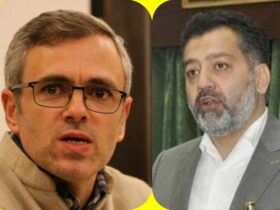
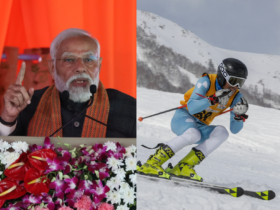

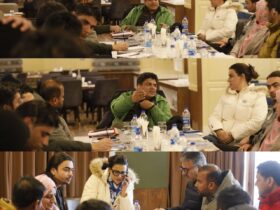



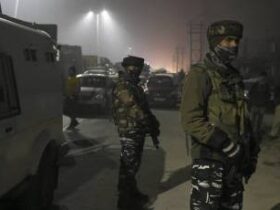
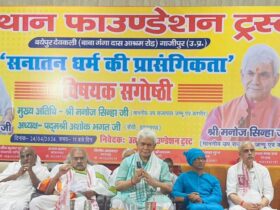
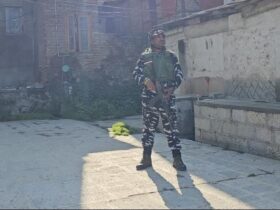
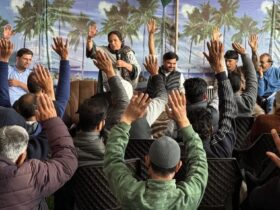
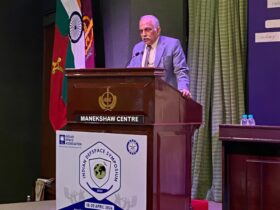
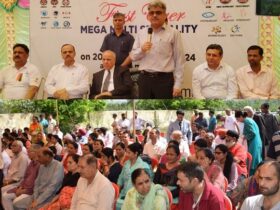
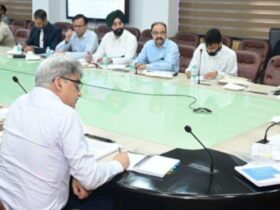

Leave a Reply